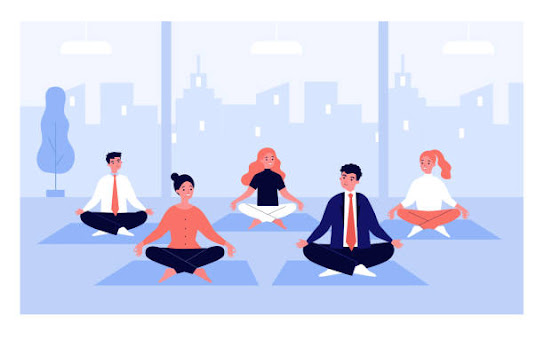We've all been there - you meet someone promising who seems really into you at first, but over time you start to wonder if their motivation has more to do with your money than your actual relationship.
Figuring out someone's true intentions can be tricky, especially in the early stages of dating. However, there are some subtle signs you can watch out for that may indicate they're mainly focused on your finances rather than you as a person.
Here are 7 key red flags to look for:
1. Lavish Gifts Right Away
One of the earliest signs is receiving overly expensive or lavish gifts very early on in the relationship or dating process. Someone genuinely interested in you as a person will take things slow and focus on getting to know each other before splurging on extravagant presents. However, someone primarily after your money may shower you with luxurious and costly gifts very quickly as a way to gain your affection and trust without having truly earned it.
Expensive presents should feel meaningful based on shared interests or inside jokes - not seem like obvious attempts to impress you with how much they're willing to spend. Proceed with caution if luxurious gifts arrive before an emotional connection has truly been established.
2. Constant Mentions of Money
Another problematic pattern is if dates of conversations regularly seem to circle back to discussing your financial status, career success, income potential or overall net worth. Someone sincerely interested in you as a partner wants to understand your hopes, dreams, values and personality - not constantly probe for monetary details.
Casual yet frequent questions about how much you make, whether you own property, or what your long term financial plans entail can indicate that personal details about your wealth may be among their top priorities rather than who you are as an individual. Be wary of anyone who doesn't seem able to carry a conversation without repeatedly steering it toward monetary topics.
3. Pressure for Joint Finances
A red flag is if someone starts applying pressure very early on for you to join finances, get a shared bank account, co-sign loans, put them on property deeds or otherwise financially entangle your lives before trust and commitment have truly had time to develop naturally over months or years.
Rushing into legally or financially binding your lives together prematurely is a major warning sign that fiscal gain may be one of their primary motivations rather than a caring, supportive partnership. Genuine relationships progress at a healthy pace with mutual understanding and respect - not undue pressures to merge money matters before you truly feel ready based on the growth of your connection.
4. Unwillingness to Split Costs
Someone genuinely into you won't keep score or obsess over who pays for what on each date. However, lack of willingness to ever contribute financially or constant expectation that you will foot most bills can indicate selfish motives.
Offering to split the check or trade off who treats is standard courtesy early on. Blatant assumption that due to your perceived higher income you should always or mostly pay is an insincere dynamic. Financially generous people care about equality and fairness in relationships rather than viewing their partner primarily as a source of free meals and entertainment.
5. Lack of Interest in Your Career
While passion for a partner's job or studies isn't essential, the disconnecting sign is zero interest or understanding of your professional path despite months of dating. Asking probing questions to genuinely learn about your career goals, projects or field of work shows interest in you as a complex individual rather than surface-level social media profile facts.
However, lack of active listening and recalling career details indicates minimal care about who you are developing into outside of financial worth. Someone serious sees your multi-dimensional life and respects career pursuits as a personal priority alongside partnership goals.
6. Bragging About Access to Luxuries
Regularly announcing access to luxury vehicles, homes, recreational toys or lavish trips that are supposedly your shared future hints at ulterior motives. Brags about all the lifestyle perks you could supposedly experience together reek of treating a prospective partner more like a non-committed sugar daddy than a loved one to build an equitable future with.
Your self-worth isn't tied to another’s spending power. Healthy relationships prioritize emotional support, trust and shared experiences - not flash and bragging rights over expensive access.
7. Pushing for Commitment without Emotional Bond
The surest sign someone could be focused on finances rather than you as a whole person is pushing relentlessly for escalated commitment steps like moving in together, engagement or marriage unusually fast without an aligned emotional bond of mutual care, respect and intimacy having sufficient time to develop naturally.
Someone after a lifelong partner wants to feel fully certain of a rounded emotional connection before binding your lives together in serious ways. Pressure for premature commitment implies motivations may have more to do with securing access to financial resources or shared cost of living than truly wanting your partnership for all its dimensions.
In summary, potential romantic interests should take the time to understand you as a complete multi-faceted individual rather than constantly messaging, dating or interacting with you primarily through a monetary lens. Look out for an imbalanced focus on gifts, money talk, split costs reluctance or assumptions of access to lavish perks that don't align with stages of healthy relationship development.
Keep conversations balanced, set financial boundaries you feel comfortable with and don't rush bigger commitment steps until both people truly feel invested in every aspect of each other as caring compatible lifelong partners. Protect yourself by thoughtfully watching for motives that may prioritize dollars over your well-being and whole self. With awareness of key signs, you can discern intentions and preserve healthier dynamics where you feel truly seen and supported in all your dimensions.














